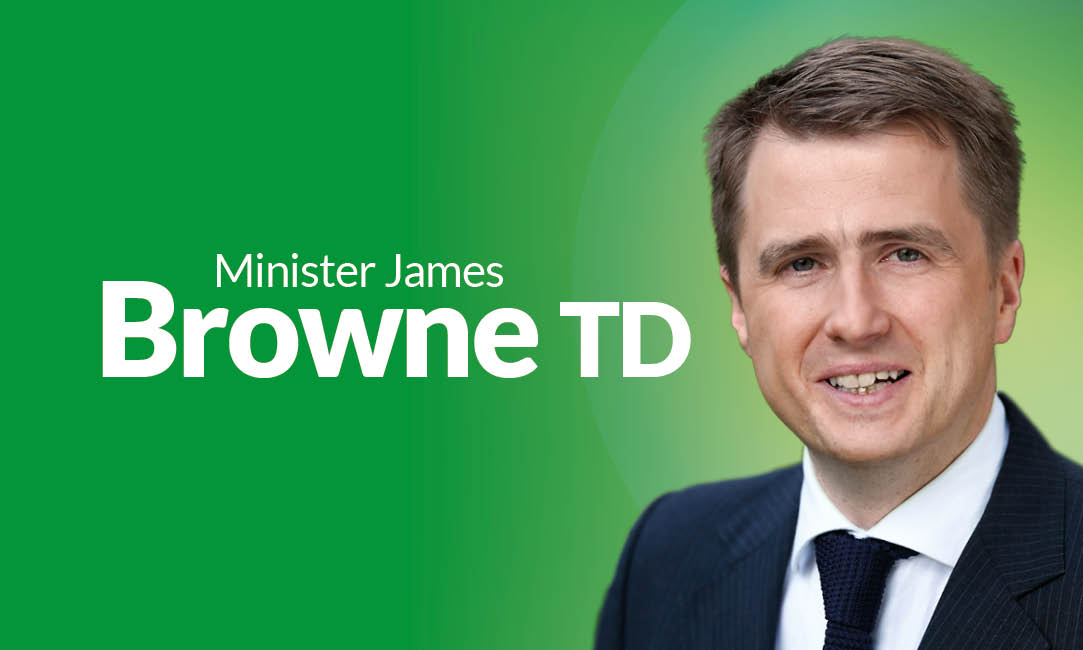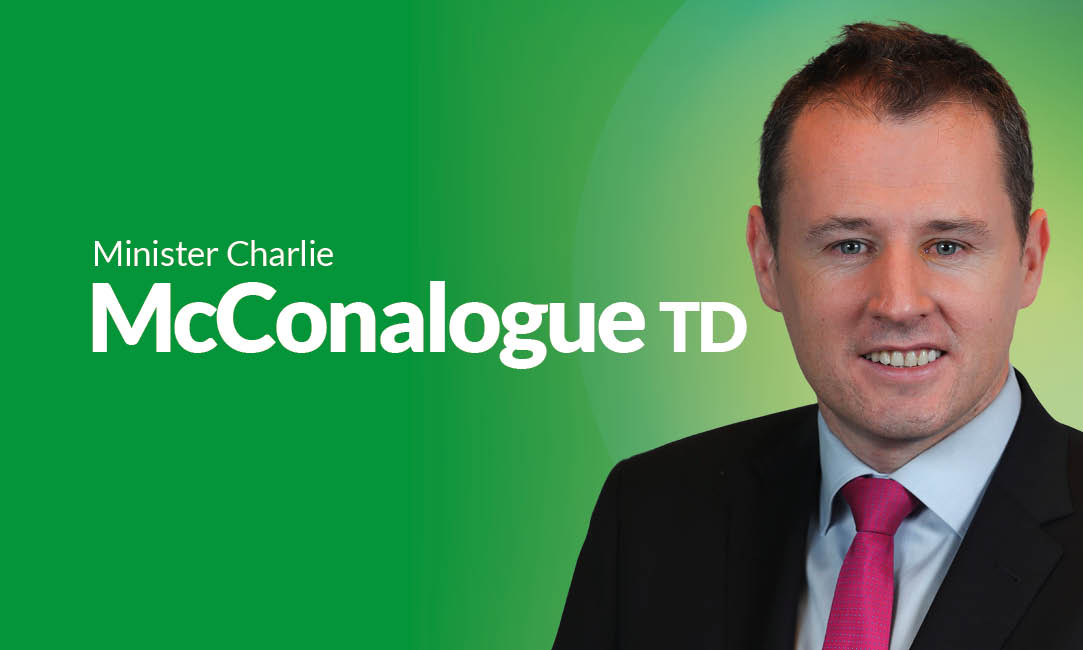Speech by Taoiseach Micheál Martin on Gaza in Dáil Éireann
Published on: 21 May 2025
It is hard to find words sufficient to the topic before us today.
It is hard to describe the immense suffering – physical and psychological – that civilian Palestinians in the Gaza Strip have endured now for more than nineteen months.
To never feel safe.
To be uprooted time and time again.
To feel the desperation that comes from not being able to find food for your children.
To see your elderly parents and grandparents suffer, rather than having the comfort and dignity that should come with age.
To carry your disabled child mile after mile to get the care they need.
To have your home, and everything you own and have built over the course of a lifetime, wiped from the earth in a single moment.
To dig your loved one from the rubble with your bare hands.
To see your family, your neighbours, your colleagues, your friends injured, maimed and killed. Your neighbourhood laid waste.
To be subject to constant surveillance and the intrusive over-head buzzing of drones.
To see hospitals destroyed. Exhausted medics struggle on without supplies adequate to the needs of their desperate patients.
To see humanitarian workers – ambulance drivers, paramedics - targeted and killed.
To see journalists trying to tell the world what is happening struck down.
It is hard to imagine. It is hard to describe. It is hard to see it on our television night after night.
How much harder must it be to endure?
I have been clear on many, many occasions that what happened in Israel on 7 October 2023 was a horrific and brutal attack on an innocent civilian population.
Nothing, and I mean nothing, could possibly justify it.
I saw it for myself when I visited Kibbutz Be’eri in the aftermath.
We all saw the horrific pictures of young people fleeing for their lives from a music festival.
Young women being brutally man-handled and shoved into cars and taken hostage.
Let us not forget that a young Irish-Israeli citizen – Kim Damti – was murdered.
Let us not forget that a young Irish-Israeli child – Emily Hand – was abducted from a sleepover and held hostage for 50 days.
Let us not forget that Israeli families still wait for loved ones held hostage to come home, after nineteen inexpressibly cruel months.
These are truly unspeakable and despicable crimes.
Hamas is responsible. Hamas must be accountable.
But let us remember also that those crimes were not perpetrated by the civilian population of Gaza that has borne the brunt of the overwhelming Israeli response, day after day, week after week, month after month, with only a short ceasefire of respite.
Ireland is a small country, but I hope it is one with a strong moral compass.
Irish people know that what has happened in Gaza over the past nineteen months is wrong, in a fundamental way.
It is not just a question of international humanitarian law, or of international treaties and conventions, or of UN Charters and resolutions. Though they are all important.
To inflict this level of suffering on a civilian population with nowhere else to go is just wrong.
Wrong morally, wrong legally.
It is an affront to human decency.
It is without mercy, or compassion or a shared sense of humanity.
It has to stop.
Ireland has not been and will not be silent in the face of happening in Gaza.
Together with Norway and Spain, we recognised the State of Palestine twelve months ago next week.
We did so because we believe that the people of Palestine and the people of Israel both deserve to live in peace and security, side-by-side.
The Government will continue to do all that we can to realise that goal – however distant it may seem from today’s grim perspective.
And let us be honest about where we are.
Rather than working for a ceasefire, the release of hostages and the surging of humanitarian aid into Gaza – as Leaders from all parts of the world have called for - Israel has this week launched a further military ground operation in the Strip, compounding an already dire situation.
After a blockade of aid lasting months, the World Food Programme has said that its food stocks in Gaza are depleted, and UNICEF has warned that children are experiencing severe malnutrition.
One-in-five Gazans is at risk of famine.
The UN has been forced to shut down most of its humanitarian work in Gaza at a time when it has never been more desperately needed. UNRWA is unable to carry out its vital mission.
The UN’s head of humanitarian aid has said that unless aid reaches them 14,000 babies could die in 48 hours. A statistic that is almost so shocking that it is hard to think about.
To be clear, the dribble of aid that Israel has allowed into Gaza in recent days is completely inadequate.
Its plan to take control of the supply and distribution of aid does not offer a credible way to address the appalling deficits that have built up. Rather, as the UN has described it, it is “designed to further control and restrict supplies”.
I welcome the statement from High Representative Kallas, and Commissioners Šuica and Lahbib, in which they express their concern about this proposed delivery mechanism.
I urge Israel to listen to the voices of the international community demanding the full restoration of aid.
Do it properly, now.
Last week, I joined with my counterparts from Iceland, Luxembourg, Norway, Spain, Malta and Slovenia in calling on the government of Israel to immediately reverse its current policy, to refrain from further military operations and to fully lift the blockade.
We were clear that the safe, rapid and unimpeded distribution of humanitarian aid in Gaza has to be undertaken by international humanitarian actors, and according to humanitarian principles.
The obstruction of life-saving aid by Israel is a violation of its international obligations.
So too would be the large-scale displacement of the population, were Israel to put plans to move Gaza’s population to the south of the strip into action.
More than 90 per cent of the population has already been displaced, some up to 13 times.
Ireland, with EU and international partners, have been clear that there can be no forced displacement of the civilian population in Gaza.
There can be no occupation of the Strip by Israel.
And let nobody say they did not know what the plan was.
Minister of Finance in Israel, Bezalel Smotrich, has spoken openly of conquering Gaza. Of destroying everything that remains of the Strip. Of pushing the population south and, he says, “with God’s help” into third countries.
He says a trickle of aid will be let in so that “the world does not stop us and accuse us of war crimes”.
I am also, of course, deeply concerned about the situation in the West Bank where Israel is conducting its single longest operation there in 20 years.
At least 40,000 people have been displaced. Combined with unprecedented levels of violence and record levels of settlement construction, there is a huge risk of further destabilisation.
Ireland, alongside EU partners, is strongly opposed to Israel’s settlement policy and activities, including in and around East Jerusalem.
We call on Israel immediately to bring them to an end.
The situation of the civilian population in Gaza is desperate.
But we cannot allow despair – or worse still, indifference – to be our response.
We must continue to do all that we can to bring about a ceasefire, the release of hostages and the relief of their suffering.
We will continue to work with like-minded partners, including in the region, to build a political process that can deliver peace and security for Palestine and Israel.
Two states. The only sustainable solution.
We will pursue that goal, including through the ‘Global Alliance for the Implementation of the Two-State Solution’.
We will participate actively in the international conference on implementing the two-State solution at the UN, which Saudi Arabia and France will co-chair in June.
We hope that it will be a decisive moment for the international community – we urgently need to find a new positivity and direction.
I have welcomed yesterday’s decision to review the EU-Israel Association Agreement to examine Israel’s compliance with its human rights obligations. It is a step that is long overdue.
Operation of the Agreement should now be suspended immediately pending the outcome as a sign that there can be no business as usual.
I expect the review to be carried out expeditiously and effectively and to have meaningful consequences.
Human rights clauses have to mean something.
In keeping with our commitment in the Programme for Government, we will continue to progress work on fit-for-purpose legislation to prohibit settlement goods from the occupied Palestinian territories.
We will do so in a way that is in line with the Constitution, that limits the risk of EU infringement procedures, and that takes account of the wider context.
We welcome the recent agreement among Arab countries on a joint plan for the reconstruction of Gaza, and we will do what we can to support and drive it forward.
The Arab-led plan provides that Palestinian ownership must be a guiding principle in reconstruction, and that the right of Palestinians to remain on their own land must be upheld.
We will work with partners to support a reformed Palestinian Authority, so that Palestinians can take responsibility for their own affairs.
There can be no role for Hamas.
After nineteen long and brutal months of war on the people of Gaza, I believe we are at a turning point.
Increasingly, some of Israel’s closest allies are calling on it to change course. I urge Israel to listen, not just in the interests of the people of Gaza, but in its own interests. This is not who the people of Israel are.
Even in these times of divided politics, I know that there is a strong consensus in this House – indeed in the country at large - on the urgency of the situation and the need to find a better way forward, a credible political path to peace for the people of Palestine.
Like their neighbours in Israel, they are entitled and deserve to live in peace and security in their own state.
We know from our own history how long and difficult the road to lasting peace and justice can be.
But we are resolute and unwavering in our commitment to walking that path with those who are dedicated to the same goals.
Let that be the united message we send from today’s debate.
ENDS

